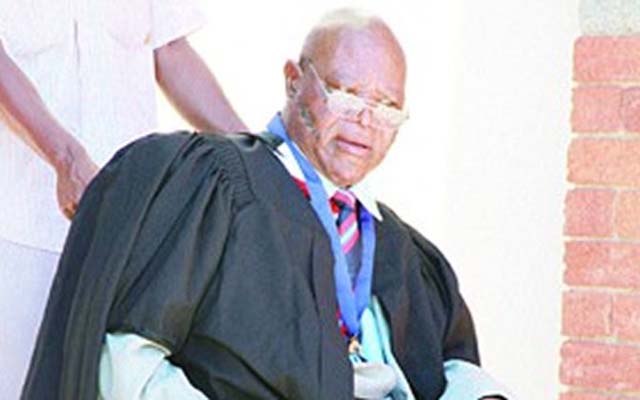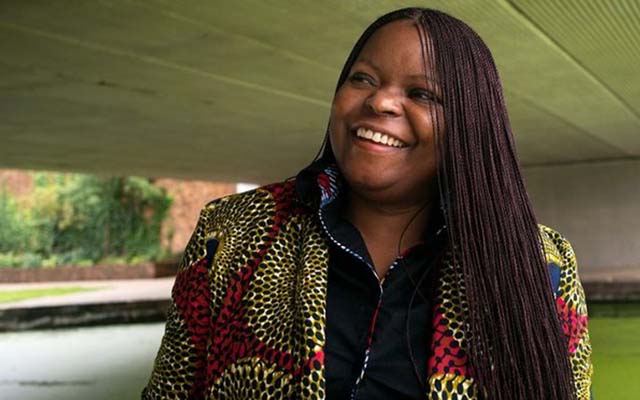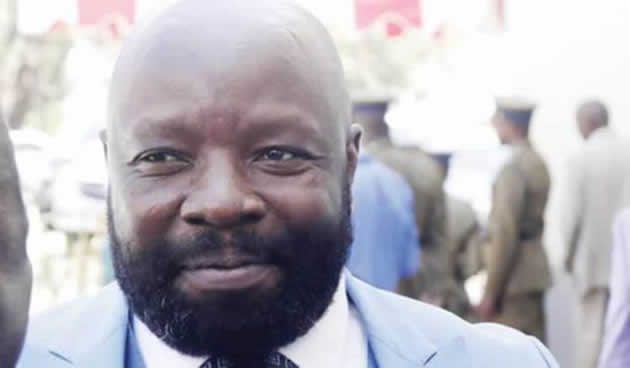Time to walk the talk on disability


Cde Malinga
Peter Banga: Correspondent
Two years ago I met Joshua Malinga, that larger than life Zanu-PF Politburo member and former Mayor of Bulawayo at a local hotel. What he said to me on that chilly July morning still rings in my mind: “Unoziva (you know what) Banga, people with disabilities should know that rights are not given on a silver platter — they should fight for them.”This he said with a twinkle after I had asked a question about government policy on people with disabilities. Malinga, who uses a wheelchair, is ever ready to take on the world. He is strong-willed and believes his physical condition should not be a restraint on his lifestyle.
His is a classic example of victory over a myriad of impediments that people with disabilities confront on a daily basis. Unfortunately this cannot be said about other Zimbabweans with disabilities.
Malinga’s remarks are quite significant as the world readies to commemorate International Day for Universal Access to Information today (September 28 2016) — a day set aside by the Unesco General Assembly to raise awareness on the global importance of the right of access to information.
Celebrations on this day are coordinated by organisations such as the Ministry of Information, Media and Broadcasting Services, Unesco, media organisations, training institutions and other interested stakeholders.
Through workshops, marches, concerts and publications, such organisations seek to highlight the relevance of access to information in the process of development and to encourage stakeholders concerned to take the issue seriously.
But from the time the commemorations started in 2015, is there any sign that the message is getting home?
The right to information is an essential part of freedom of expression. What this means is that everyone, including those with disabilities should have the freedom to seek, receive and impart information through media such as newspapers, radio, television, internet, theatre and even church gatherings.
Disabled persons comprise more than 600 million people worldwide and 15 percent of the population of Zimbabwe.
My submission is that we need a relook on the issue of universal access to information.
While we acknowledge that people in remote areas still cannot access newspapers, radio and television signals, we should also spare a thought on how a significant part of our population is being isolated daily from ordinary conversations particularly those with disabilities.
Generally, such people have limited access to information which is often distorted and to all intents and purposes disempowering if not disheartening.
We converse animatedly each day on topical economic, political and social issues yet we do not spare a thought for those who are deaf? Are they in the loop, so to speak?
We fail to share critical information with them since we cannot speak ‘their’ language.
The assumption then is that they share information among themselves. As a nation, we need to reflect on how we can encourage the use of sign language from an early age.
That way we can genuinely interact with the deaf.
There should be sign language interpreters at public gatherings such as church services and at capacity building workshops.
Their absence sends a wrong message that the deaf have no right to be in such places. And they in turn ignore such gatherings.
Think on this one — people with albinism have poor eye-sight but as a nation we only talk about their plight without taking action.
At school such children struggle to read messages on the chalkboard and text books in small print.
Access to information for such people means putting in place a deliberate policy which ensures they get eye tests and spectacles for free.
Those who are blind generally receive secondary information because someone else has to read them the newspaper.
They are not able to access information online except through special software like Job Access with Speed (JAWS).
Government should make it possible for them to receive at least one edition of the newspapers in Braille, at least once a week.
Let’s have in Braille information on products used frequently by everyone such as condoms, lifts in buildings and the introduction of talking traffic lights for the blind.
My friend, Tongai Chinhaire, who is blind, likes to talk about his experiences each time he enters a shop.
Assuming that he is in the shop to beg, the attendants invariably utter, “Sorry sir, we have no money to give you today.”
This is despite the fact that he is self-employed and is a landlord.
Sadly, we associate blindness with begging. Surely, such perceptions need to change.
The bottom line is that information to craft appropriate policies on disability is not getting to policy makers.
Organisations for people with disabilities should articulate these issues without fear. We need to hear from them how distortion of information affects their constituency.
For instance, no one has come forward to challenge the fact that Zimbabwean prisons have squat toilets, which disabled people cannot use. Are we saying there are no prisoners with disabilities?
We are yet to challenge the construction of Blair toilets in rural areas, which people with disabilities cannot use. This is an opportunity for them to spearhead efforts to redesign the toilets, to make them user friendly.
There is silence on problems most people with disabilities face in creating and maintaining healthy relationships in business, social and other facets of life. They lack confidence, fear rejection and endure abusive remarks.
Picture this scenario:
A newly-wed with a disability overheard her mother-in-law making some derogatory remarks regarding her disability.
“Zvino Rufaro angabva atiigira chirema here?” remarked the mother-in-law contemptuously. (How could Rufaro bring us a bride with a disability?) On hearing this, the poor woman broke down and tears started streaming down her cheeks.
In the Shona language, the prefix “chi” belongs to the noun class for animals and inanimate objects, not humans.
When it is used in reference to a person it is derogatory. This is an example of ordeals people with disabilities face every day. Those with disabilities should constantly educate society on the appropriate language to use.
We have adverts in newspapers, radio, television and billboards. Yet there is no single advert that jogs the mind about the challenges people with disabilities face. We should see such people in everyday adverts, so that those with disabilities are able to identity with the messages.
Nowadays journalists are conscious of balancing sources on the basis of gender. They should also use sources with disabilities instead of focusing on them only when there is a food donation or when they have committed a crime.
Artists should be involved in commemorations of universal access to information. They shape our perceptions about life.
Access to information can only become a reality if people with disabilities do less of talking and implement ideas that will make a difference in terms of how society perceives them.
This is aptly captured by a Japanese proverb which says: “Vision without action is a daydream. Action with without vision is a nightmare.”
Peter Banga is Head of Harare Polytechnic School of Journalism and Media Studies. He can be contacted on: [email protected]










Comments